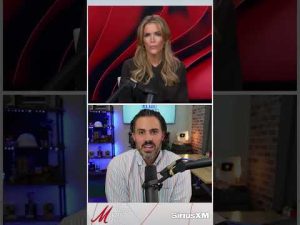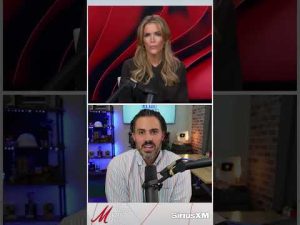**The Trucking Industry’s Call for Reform: Addressing Waste and Worker Exploitation**
The trucking industry is raising its voice, and it’s not just the sound of engines revving. A growing number of truckers are sounding alarms about wasteful spending and outdated policies that have put the industry in a precarious position. Gord McGill, a seasoned truck driver and author, is taking a bold stand to inform powerful figures like Elon Musk and V. Ramaswamy about the pressing issues at hand. In his compelling open letter featured on The Blaze, McGill brings forward a slew of recommendations aimed at overhauling America’s trucking system.
One of the primary issues McGill addresses is what he refers to as a “stealth corporate welfare scam.” He asserts that the industry has become overly reliant on government money masquerading as job support. Despite claims of a truck driver shortage, McGill argues that this supposed shortfall is artificially manufactured. The trucking sector has been whining about a scarcity of drivers for decades, but according to him, the real problem lies elsewhere—a need for comprehensive reforms rather than more handouts.
Digging deeper, McGill brings attention to a darker side of the trucking world that he describes as “modern-day slavery.” This problem stems from the influx of illegal immigration and the exploitation of migrants eager for work. Shocking reports have surfaced of individuals being brought into the United States with the promise of truck driving jobs, only to find themselves trapped in a web of exploitation. Many of these workers lack proper guidance, training, and even the ability to speak English fluently. Instead of being handed the keys to an 18-wheeler, these individuals are left to fend for themselves in a high-stakes environment.
One particularly alarming trend involves the issuance of commercial driver’s licenses (CDLs) without proper oversight. McGill points out that in places like California, there have been instances where hundreds of licenses were issued without any documented road tests. The result? A higher risk of accidents, as rookie drivers hit the highways with little to no practical experience. This dangerous practice not only endangers the drivers themselves but also the motoring public. With statistics showing that truck accidents are more likely than air incidents, the need for stringent reforms becomes imperative.
So, what does McGill propose? He believes it’s time to cut the fat from the funding directed toward truck driving schools, which he calls “CDL Mills.” With nearly 10 million people in the U.S. already holding a CDL and only about 3 million trucking jobs available, there’s a glaring disparity that begs for investigation. McGill argues that the industry needs to grapple with its own inefficiencies rather than perpetuating a flawed system that only results in more inexperienced and potentially dangerous drivers on the road.
Additionally, McGill’s fervor for reform doesn’t stop at domestic issues; he connects the dots to the plight of Canadian truckers. He believes that President Trump, by addressing issues in the U.S., could also lend his influence to help those unjustly incarcerated in Canada during the Freedom Convoy protests. It’s an interconnected web of concerns that spans borders, all rooted in the resilience of workers who are seeking better conditions in an industry that is desperately in need of change.
In conclusion, as McGill and other industry advocates push for reform, the spotlight is on the inefficiencies, safety concerns, and exploitation within the trucking sector. It’s time for stakeholders at all levels to listen, act, and create a safer, more efficient trucking industry for everyone. After all, the road to progress often requires more than just driving forward; it necessitates a clear understanding of where the potholes lie.







